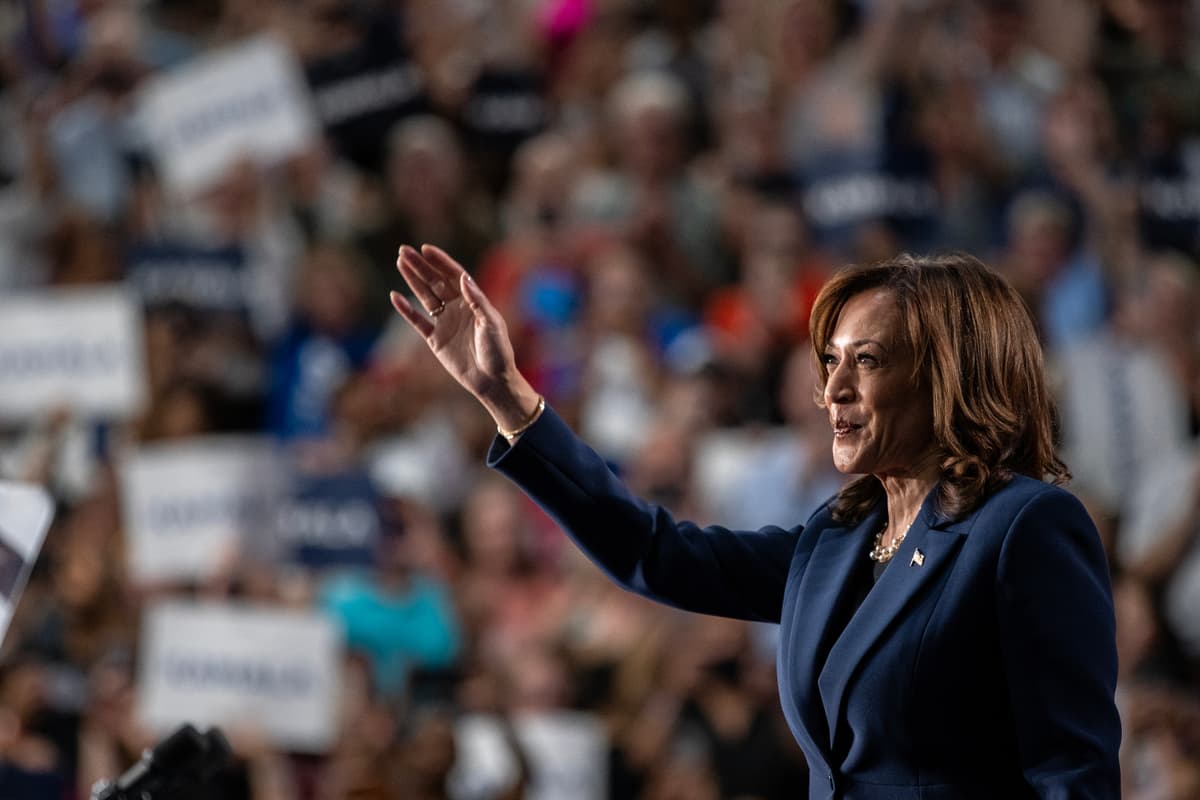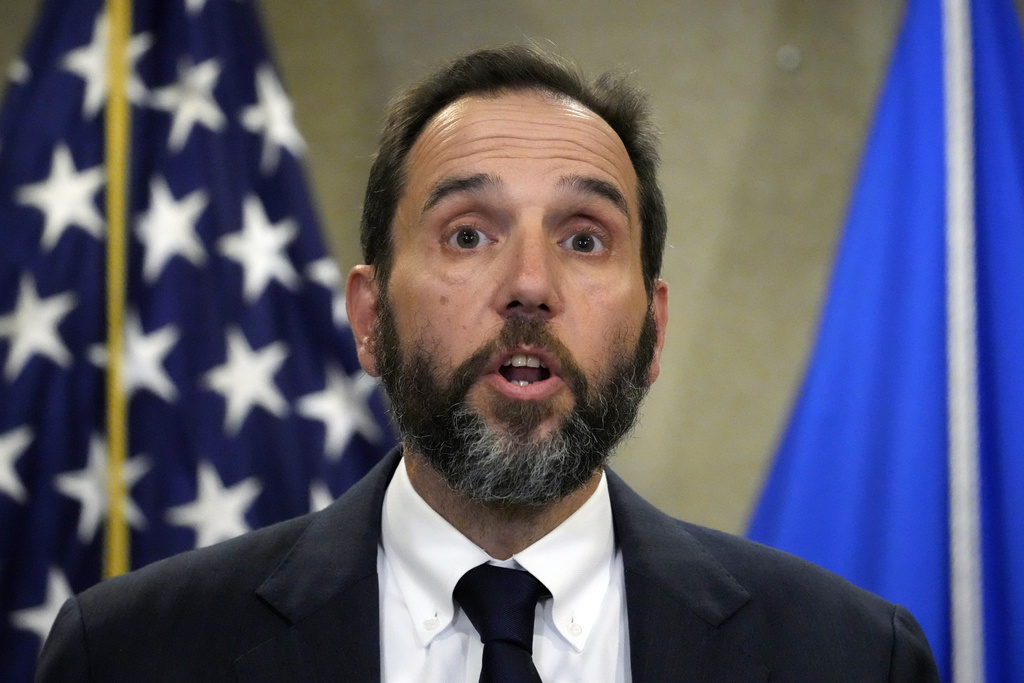A Kamala Harris Win Would Buy Jack Smith Time To Try Trump, but the Special Counsel Has Fateful Decisions Ahead
If the vice president wins the White House, the runway would be clear for a trial of the 45th president.

Special Counsel Jack Smith could emerge from August with a slimmed-down indictment that has a better chance of taking President Trump to trial than the one that now must pass the Supreme Court’s daunting immunity standard.
If Trump wins the White House, there is likely no federal indictment that could survive his possible control of the Department of Justice and his wielding of pardon power. If Vice President Harris wins, though, the runway would likely be clear for a trial. Her frequent reference to Trump as a “felon” suggests that no pardon would be forthcoming from a Harris administration.
If Ms. Harris wins the White House, Mr. Smith would have time to pursue Trump through the tiers of the federal judiciary — that could take months, or even years — but he still would have to contend with a high court that has shown itself to be a jealous guardian of the prerogatives of the presidency. If he cannot craft an indictment that passes Supreme Court muster, he could not convict Trump.
That’s why less could be more for the prosecutor in the wake of the Nine’s ruling that presidential official acts are presumptively immune and that unofficial ones are not. The distinction is Judge Tanya Chutkan’s to make. She was ready to begin that process this month, but it was Mr. Smith, usually so accustomed to pushing the litigation pace, who asked for a three-week delay.
Mr. Smith wrote Judge Chutkan that he needs more time to engage in “consultations with other members of the Justice Department,” which could include Attorney General Garland. On their agenda could be the possibility that Mr. Smith’s sprawling indictment could no longer be viable in its entirety after the high court’s immunity holding in Trump v. United States. It is not uncommon for prosecutors to add or drop charges before trial.

Compared to District Attorney Fani Willis’s charge sheet in Fulton County, Georgia, Mr. Smith’s indictment is a model of economy. She charged 19 defendants with 41 crimes in Georgia state court. Some of those defendants have pleaded guilty and other charges were struck by the presiding judge. By comparison, Mr. Smith charged only Trump, though the indictment does list six unindicted co-conspirators. The 45h president is accused of four crimes, not the 13, including racketeering, alleged by Ms. Willis.
The justices signaled, though, that more would have to be trimmed. During oral arguments in Trump, Justice Amy Coney Barrett suggested that Mr. Smith limit his case to what she called “private acts.” She even had Trump’s attorney, John Sauer, concede that Trump’s interactions with state officials and private lawyers would not be immune. The Supreme Court, though, warned that Trump’s interactions with Vice President Pence and the DOJ are presumptively immune.
Messrs. Smith and Garland now need to determine whether those acts, which are the core of the indictment as it is written, are worth litigating. Those episodes were also central to the January 6 Committee’s report, put together by an overwhelmingly Democratic cohort. Mr. Smith leaned on that démarche in composing his indictment.

Chief Justice Roberts’s majority opinion declares that “Trump is absolutely immune from prosecution for the alleged conduct involving his discussions with Justice Department officials,” but it allows that his colloquies with Mr. Pence, state officials, certain private parties, and his comments to the general public present more difficult questions. That suggests an opening for Mr. Smith, if he can modify his indictment to focus on those acts.
The litigation over the interactions with Mr. Pence could be among the most heated of the entire proceeding. Chief Justice Roberts writes, “Whenever the President and Vice President discuss their official responsibilities, they engage in official conduct,” which means that the 45th president’s efforts to have Mr. Pence block the certification of the vote are presumptively immune. Such a presumption can be overcome — but it won’t be easy.
A path of less resistance would be for Mr. Smith to jettison the conversations with Mr. Pence altogether, and focus instead on what the Supreme Court summarizes as “interactions with persons outside the Executive Branch: state officials, private parties, and the general public “ Mr. Smith alleges that Trump and his camarilla “developed and effectuated a plan to submit fraudulent slates of Presidential electors to obstruct the certification proceeding.”
Trump argues that such schemes — one of them, in Georgia, is also charged by Ms. Willis — are official acts because they were “undertaken to ensure the integrity and proper administration of the federal election.” Here the Nine do not tip their hand, but merely turn to Judge Chutkan to undertake a “fact-specific analysis of the indictment’s extensive and interrelated allegations.”
The reason why Trump is exposed with respect to his communications with state officials is because the Constitution ordains that the “Times, Places and Manner of holding Elections for Senators and Representatives, shall be prescribed in each State by the Legislature thereof, but the Congress may at any time by Law make or alter such Regulations.” No role is assigned to the president.

